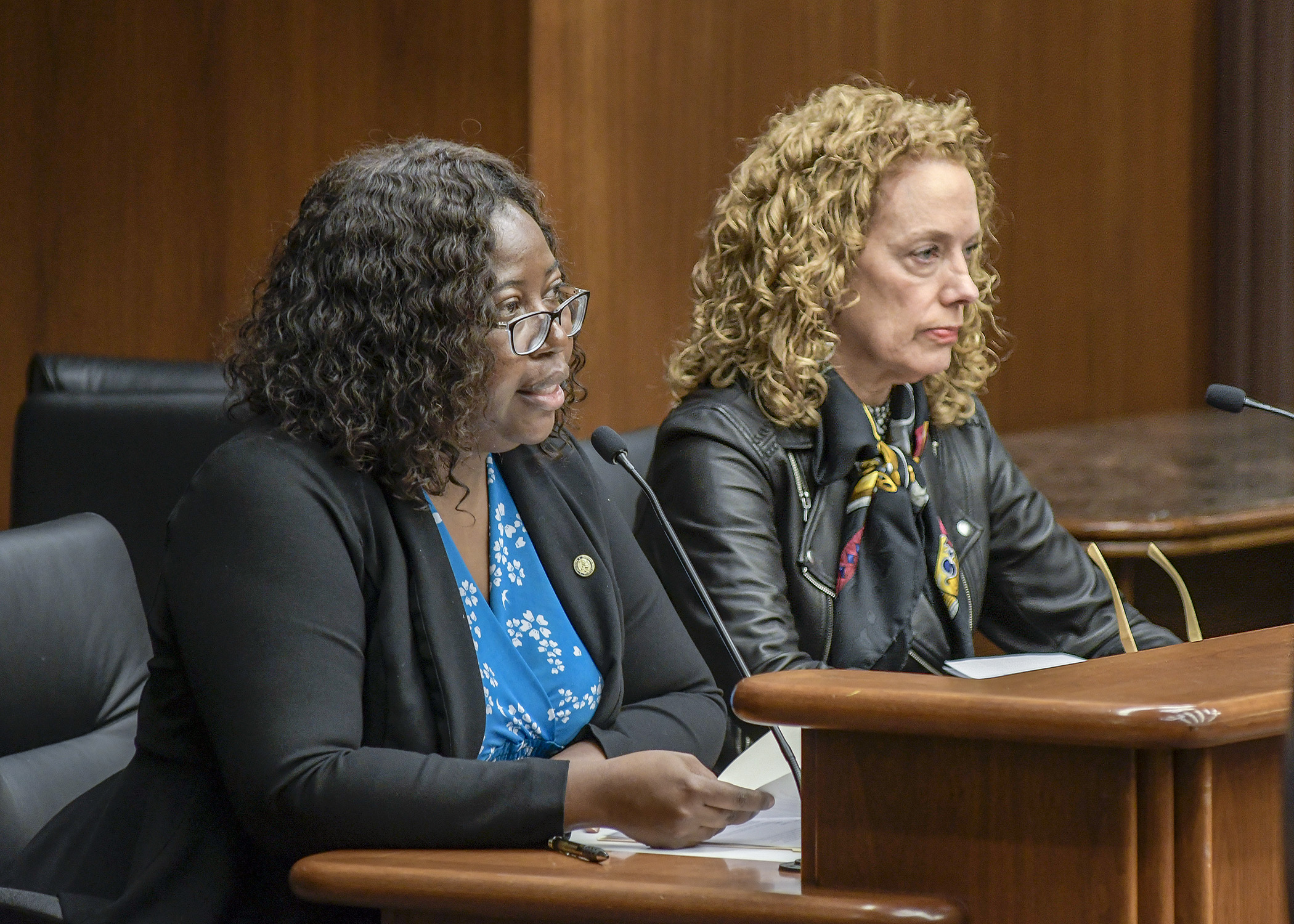People with fetal alcohol spectrum disorders could get support through brain injury wavier

Fetal Alcohol Spectrum Disorders are permanent conditions that last a lifetime and have no cure, but people in desperate need of state services can be left out “because their brain injury occurred before they were born,” Rep. Ruth Richardson (DFL-Mendota Heights) said.
She sponsors HF929, which would allow some people with Fetal Alcohol Spectrum Disorders to qualify for the state's brain injury wavier.
The bill was approved by the House Health and Human Services Policy Committee Wednesday and referred to the House Ways and Means Committee. A companion, SF1429, is sponsored by Sen. Jerry Relph (R-St. Cloud) and awaits action by the Senate Health and Human Services Finance and Policy Committee.
The disorder occurs when children are exposed to alcohol while their mother is pregnant and can cause brain damage, problems with the central nervous system, physical defects, intellectual or cognitive disabilities, and behavioral issues, according to the Mayo Clinic.
Because it is a “spectrum condition,” with a range of symptoms that vary in intensity, not everyone diagnosed with the condition would be impacted by the bill, Richardson said.
Individuals would still need to meet service levels required by the waiver and could not simultaneously receive services under the developmental disability wavier. The brain injury wavier provides services for people requiring the level of care provided in nursing homes or neurobehavioral hospitals while people covered by the developmental disabilities wavier require the level of care available in intermediate care facilities.
By giving people with Fetal Alcohol Spectrum Disorder the supports they need early enough, other problems associated with the condition could be avoided, including school disruption, caregiver fatigue, housing insecurity, and mental health problems, testifiers said.
Rebecca Wallin, the mother of a 21-year-old son with the disorder, said that he has been able to overcome stigmatization, find a job, and get involved in the community, but the opportunities and supports that helped him aren’t necessarily available for everyone.
“I have drained our family’s personal resources. I had to give up my career. My health has suffered trying to shepherd my son to adulthood and keep him safe,” she said. “Institutionalized supports do not exist.”
Related Articles
Search Session Daily
Advanced Search OptionsPriority Dailies
Ways and Means Committee OKs proposed $512 million supplemental budget on party-line vote
By Mike Cook Meeting more needs or fiscal irresponsibility is one way to sum up the differences among the two parties on a supplemental spending package a year after a $72 billion state budg...
Meeting more needs or fiscal irresponsibility is one way to sum up the differences among the two parties on a supplemental spending package a year after a $72 billion state budg...
Minnesota’s projected budget surplus balloons to $3.7 billion, but fiscal pressure still looms
By Rob Hubbard Just as Minnesota has experienced a warmer winter than usual, so has the state’s budget outlook warmed over the past few months.
On Thursday, Minnesota Management and Budget...
Just as Minnesota has experienced a warmer winter than usual, so has the state’s budget outlook warmed over the past few months.
On Thursday, Minnesota Management and Budget...